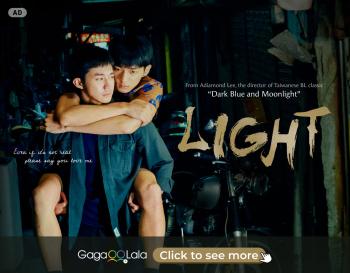In the first half of 2020, the world has changed in ways not seen for a generation. As the Coronavirus sweeps across the globe it is affecting people’s health, costing lives, and taking a wrecking ball to the global economy. But there’s another, more silent, crisis lurking beneath these headlines. Lockdowns, quarantines, and other restrictions on people’s everyday lives are ravaging people’s mental health. Experts warn that single LGBT people are particularly at risk. So why might we feel more lonely, depressed, or anxious during lockdown? And, what should we do about it?

Unlocked (Image from GagaOOLala)
When we are cut off from the rest of the world, any feelings can easily amplify and run away with us. Even following the (mostly bad) news can make people anxious and worried about our loved ones or how the future might pan out. People who have been laid off or furloughed will have extra financial worries and might experience feelings of worthlessness or hopelessness. Disrupting someone’s routine gives people more time to think (or overthink) their predicament.
What’s more, humans are social animals. And, without regular contact with our nearest and dearest, we will inevitably lonely and detached from life. If you’re the type of person who spends their weekends with friends at restaurants, bars, or shopping malls, you will be hardest hit by this loneliness. Although technology lets us stay in contact with others, synchronized Netflix and group video calls can’t replace real-life socializing we have all become accustomed to.

(Image from GagaOOLala)
Single people, therefore, may find themselves resenting their coupled friends. It is true that in most situations, couples have an easier ride because they have someone with which to share the emotional and financial burden of the lockdown. Single people may find themselves becoming jealous of coupled friends. Resentment may also rise from sexual jealousy. Single people might assume couples easily while away lockdowns by endlessly making love while single people long for the touch and warmth of another person's body. These thoughts can lead some people’s minds to land on ex-lovers or past relationships and to re-live past happiness, but also past heartbreaks. Negative thoughts like jealousy and regret can wreak havoc with our mental well-being.

(Image from GagaOOLala)
In everyday life, LGBT people are more susceptible to mental health issues that the rest of the population. This is just as true during lockdown. LGBT people could be stuck in a house with family or other people who they are not open about their sexuality with. In some cases, LGBT folks may find themselves in an environment that is actively hostile towards LGBT people, with no chance to escape. It is well documented that many LGBT people build support networks outside of their family homes, and rely on friends that they can be open with. Lockdown separates us all from our support networks.

(Image from GagaOOLala)
So, what we can do about it? Depression, anxiety, and loneliness if left unchecked or mismanaged can have damaging and lasting consequences. Looking to sate our appetite for intimacy could lead to risky sexual behaviour. This could put yourself and your community at risk during lockdown. Loneliness or depression can make people search for instant gratification or validation. Without access to a support network, people make rash or unwise decisions. And, turning to substances such as alcohol or drugs to numb the pain we feel, can lead to problems with addiction.

(Image from GagaOOLala)
Psychologists point to a number of techniques or habits to stay mentally healthy during lockdown. Experts suggest maintaining structure in your daily life. A daily schedule of activities, exercise, meal times, and relaxation even if you’re at home all day will keep your mind focussed. Set achievable goals to give yourself the sense of daily satisfaction you might have got from going to work or school during regular times. It is also important to try to stay in the present, experts say.
Try not to let your mind obsess over possibilities and things you cannot control. Some people find meditation or yoga particularly good for clearing the mind. Body and mind are interconnected. Exercise has so many mental health benefits, it relieves stress and tension, gives you more energy, and is also a form of mindfulness.

(Image from GagaOOLala)
Despite the change in social habits, it is important to express yourself and stay connected, experts say. Many people have found new hobbies and interests during lockdown, such as baking or painting. If these activities also let you interact with others through forums or video calls, then they are even more beneficial. Don’t be shy. Even if you usually chat only with a classmate or co-worker at school or work, take the initiative and give them a call—they might be lonely too. Finally, don’t be afraid to reach out for help and be honest about what you are feeling. This could be a trusted friend or family member or a health professional or charity with experience in providing support. There is always someone to talk to.
GagaOOLala just launched the series Unlocked, a 6 episode anthology about gay relationships during quarantine. The first episode focuses on a hearbroken man that, unable to bear his loneliness any longer, hires a male prostitute.

















